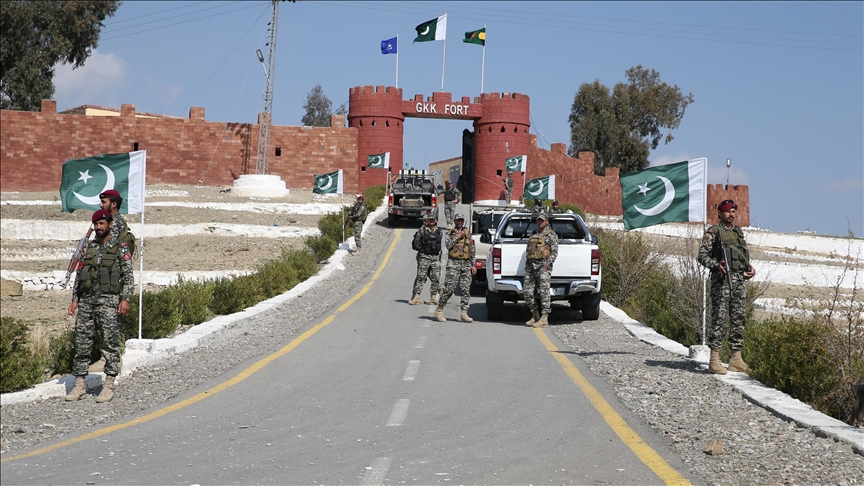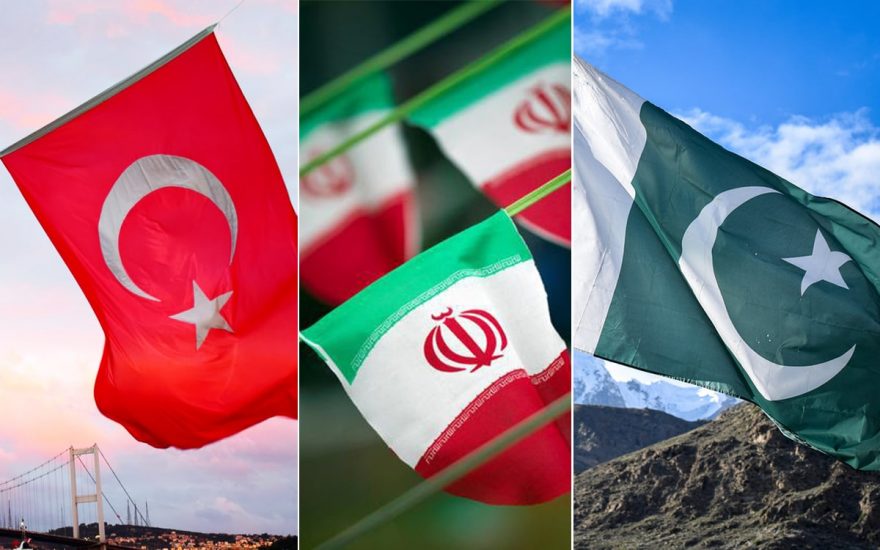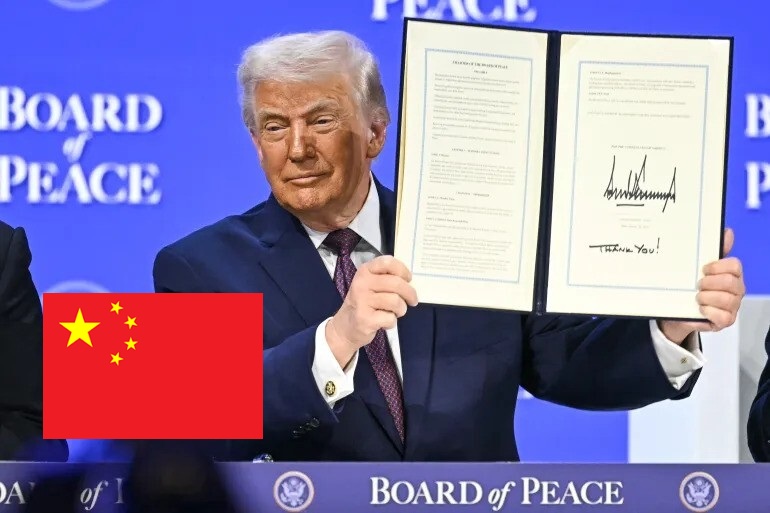In recent days, two important diplomatic moves in South Asia and the broader region have caught Pakistan’s attention. First, the neighbouring country of Iran has offered to act as a mediator between Pakistan and the government of Taliban-ruled Afghanistan. Second, Turkiye has announced a significant delegation to Pakistan in order to help break the deadlock in Pakistan-Afghanistan talks. For Pakistan, these developments hold both opportunity and complexity — and they underscore Pakistan’s evolving role in the region’s diplomacy.
Iran’s Offer to Mediate between Pakistan and the Taliban
According to reports, Iran’s Foreign Minister Seyyed Abbas Araqchi has conveyed Tehran’s commitment to work toward a peaceful resolution of Pakistan-Afghanistan tensions, offering Iran’s assistance to broker discussions. The offer came amid escalating border tensions, and the commentary emphasised that a settlement between these two neighbours would benefit not just the two countries but the whole region.
From a Pakistani viewpoint, Iran’s offer matters for several reasons:
-
Geographical and historical proximity: Pakistan shares long and porous borders both with Afghanistan and Iran. When tensions flare on the Afghan side (especially under the Taliban regime), Pakistan’s border and security calculations are materially affected. An Iranian mediator could help ease that burden.
-
A broader regional architecture: Pakistan often finds itself balancing relationships with Iran, Afghanistan, and other regional players including India, China, and the Gulf. Iran stepping in as a mediator signals a willingness of a regional power to assist in the Pakistan-Afghanistan dynamic.
-
Diplomatic optics and leverage: For Pakistan, having Iran as a partner mediator could offer additional diplomatic cover in managing relations with the Taliban regime in Kabul. It also provides leverage — Pakistan can show that the efforts are multilateral rather than bilateral crisis management alone.
However, there are also caveats worth considering:
-
Trust and alignment: Historically, Iran and Pakistan have had a generally cooperative relationship, yet they also have diverging strategic interests. Pakistan will need to ensure Iran’s mediation stance aligns with Islamabad’s own priorities.
-
Taliban recognition and dynamics: While Pakistan has had complex ties with the Taliban regime, the formal status and the internal power dynamics of the Afghan government remain uncertain. A mediator must be acceptable to all parties.
-
Sovereignty and border management: Pakistan wants assurances that any mediation will not infringe on its sovereignty or empower non-state actors. If any proposal results in unwanted external influence over Pakistan’s border zones or intervenes in internal Pakistani matters, that could backfire.
In the Pakistani media, the emphasis is on how Tehran offers full assistance to reduce the Pakistan-Afghanistan tension. For Islamabad, welcoming such assistance is understandable. But Pakistan must also ensure that it retains control of the process, sets clear priorities (border security, refugee flows, trade, and transit access), and uses the mediation offer to stabilise rather than complicate its Afghan frontier.
Turkiye’s Delegation to Pakistan in Aid of Pakistan-Afghanistan Negotiations
Shortly after Iran’s outreach, Turkiye announced that President Recep Tayyip Erdoğan has decided to send a delegation to Pakistan — including the Turkish foreign minister, defence minister and intelligence chief — in the coming days. The purpose: to help finalise a cease-fire between Pakistan and Afghanistan, and to assist in cementing a sustainable peace.
From Islamabad’s vantage, this is significant:
-
A third regional partner: While Pakistan has traditionally been at the centre of the Afghanistan equation, Turkiye’s involvement demonstrates that multiple regional players are now stepping up. This helps Pakistan by sharing the diplomatic burden and enhanced legitimacy.
-
Turkiye as a trusted friend: Pakistani statements referenced Turkiye and Qatar as our friends and noted that Pakistan cannot refuse its friends. Turkiye’s outreach is framed in amicable terms, providing Islamabad with a partner that is culturally and strategically more aligned than some others.
-
Practical focus on cease-fire and reconciliation: The Turkish effort is explicitly oriented toward ending the deadlock and working toward a stable peace. For Pakistan, this is a practical goal: less border violence, more stable transit, fewer refugee pressures, and improved internal security.
But this also brings its own set of complexities:
-
Agenda alignment: The Turkish delegation will presumably present proposals. Pakistan must ensure any agreement aligns with its own national interests — especially with respect to border management, the role of the Taliban regime, and Pakistan’s desire for Afghan stability without external intervention.
-
Role clarity: Pakistan must maintain clarity about its role and responsibilities. While Turkiye might assist, it should not overshadow Pakistan’s primary role as Afghanistan’s neighbour.
-
Regional optics: With Iran, Turkiye and potentially other states involved, the question becomes one of overlapping initiatives. Pakistan must avoid duplication, conflicting mediation efforts, or being pulled into contradictory frameworks.
In the Pakistani narrative, this Turkish move is welcomed — but implicitly, Pakistan is conscious to ensure it is not ceding control or oversight of a process that directly affects its national security and border stability.
What This Means for Pakistan: Key Implications
Renewed Focus on the Pakistan-Afghanistan Frontier
For Pakistan, the Pakistan-Afghanistan border is more than a line on the map: it represents years of insurgency spillover, refugee flows, bilateral mistrust, and transit-trade opportunities. With two regional powers offering mediation, Pakistan has both a timely chance and a risk. If handled adeptly, the offers can lead to reduced frontier tension, improved bilateral talks, better trade/transit, and less security burden. If mismanaged, Pakistan could face mediation outcomes that do not reflect its border imperatives or sovereign interests.
Diplomatic Diversification
The dual offers from Iran and Turkiye show that Pakistan is not alone in the Afghanistan equation. Reliance solely on US or Western frameworks is decreasing. For Pakistan, this diversification is welcome — more regional partners means more room for manoeuvre. But diversification also demands finer diplomacy: Pakistan must balance its relationships with Iran and Turkiye, while ensuring its own national interest remains front and centre.
Trade, Transit and Economic Dimensions
Although the current media focus is on diplomacy and security, the undercurrent is economics. A stable Afghanistan and good Pakistan-Afghan relations open up possibilities for trade corridors linking Central Asia through Afghanistan, access to Iranian markets, and more. If Iran and Turkiye help create stability, Pakistan stands to gain economically. On the flip side, failure to capitalise on this diplomacy means lost economic potential.
Strategic Autonomy
Pakistan’s involvement in regional mediation efforts underscores its strategic importance. By cooperating with Iran and Turkiye — rather than being the subject of external initiatives — Pakistan strengthens its autonomy. However, this autonomy must be protected. Pakistan must ensure it is not sidelined or that decisions are not made over its head. Being proactive rather than reactive is key.
Image and Regional Standing
From a soft-power perspective, Pakistan’s positive engagement boosts its image as a responsible regional player. This matters not just for Afghanistan but for Pakistan’s relations with other neighbouring countries and for its role in multilateral forums. Conversely, if talks falter or border tensions escalate during mediation, Pakistan’s image could suffer.
Challenges and Pakistan’s Way Forward

Challenge: Unclear Afghan side dynamics. The Afghan government under the Taliban remains internally fragmented and internationally isolated. Mediation efforts must account for the internal Afghan power structure.
Challenge: Border security vs. diplomacy. Pakistan cannot place all its security eggs in the basket of diplomacy. While mediation is welcome, Pakistan still needs strong border management, intelligence coordination and internal stability.
Challenge: Coordination among mediators. With Iran and Turkiye both taking roles, Pakistan must coordinate efforts so that mediation is coherent.
Pakistan’s Way Forward:
-
Set clear objectives: articulate core red-lines and priorities
-
Lead the process domestically
-
Leverage economic incentives
-
Maintain defence and security readiness
-
Project a positive narrative
Conclusion
The twin developments — Iran volunteering mediation and Turkiye dispatching a delegation to Pakistan — represent an important moment in the region’s evolving diplomacy. For Pakistan, they open up both opportunity and responsibility. The opportunity is to stabilize a volatile frontier, deepen regional partnerships, and boost economic prospects. The responsibility is to steer the process in a way that safeguards national security and advances Pakistan’s long-term interests.
If Pakistan plays this role thoughtfully and assertively, it can position itself not simply as a transit state or frontline neighbour, but as a constructive hub for peace in South and Central Asia.
Dr. Muhammad Arif is a geopolitical analyst and regional affairs expert specializing in South and Central Asia. With over 15 years of experience in diplomacy, security studies, and international relations, he provides insightful commentary on Pakistan’s foreign policy and regional dynamics.



